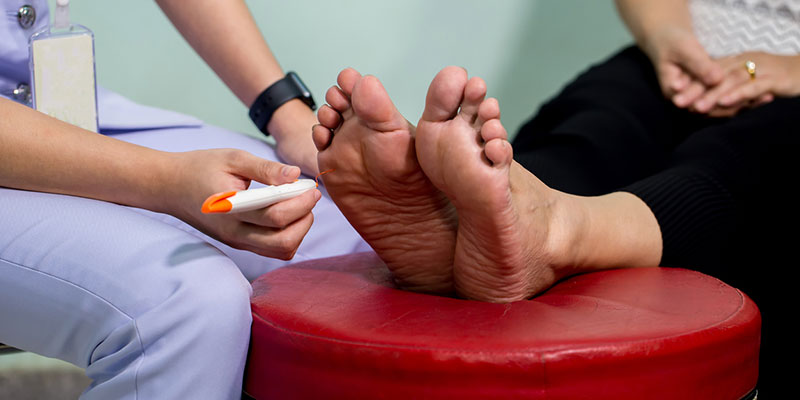Neuropathy is a condition characterized by tingling, numbness, or pain in the hands and feet (although it can occur in other areas as well). This condition can range in severity, as for some it is simply a nuisance, but for others, it can be debilitating. If you are suffering from neuropathy symptoms, we at Complete Rehab encourage you to see a neuropathy specialist like those on our team.

In our experience, it can be difficult to think of questions to ask during a medical appointment—even if you have a ton of questions, they can seem to fly out of your head during the session itself—so we have put together this article to go over a few questions you should ask.
- What can I do to alleviate my symptoms? – When you talk to a neuropathy specialist, one of the first questions you should ask should be what to do about your symptoms. In most cases, our neuropathy specialists will recommend over-the-counter painkillers you can take to deal with pain, as well as topical creams you can use to provide more pain relief and reduce any irritation. If your neuropathy pain is severe, we may write you a prescription for stronger pain medication.
- What lifestyle changes can I make to reduce my symptoms? – We also encourage you to ask your neuropathy specialists about lifestyle changes you can make to manage your condition and alleviate its symptoms. Depending on the cause and severity of your neuropathy, our specialists may recommend working some low-impact exercises into your routine, limiting your consumption of alcohol, and further adjustments.
- Is there anything I should be careful about? – Our team also recommends asking your neuropathy specialist about what precautions to take to avoid hurting yourself when dealing with neuropathy symptoms. Since one of the main neuropathy symptoms is numbness, many people with neuropathy have hurt themselves without realizing it. We encourage you check the affected areas daily to see if you have any cuts, blisters, or other sores there—if you find anything, make sure to clean and bandage the wound to prevent it from getting infected.







